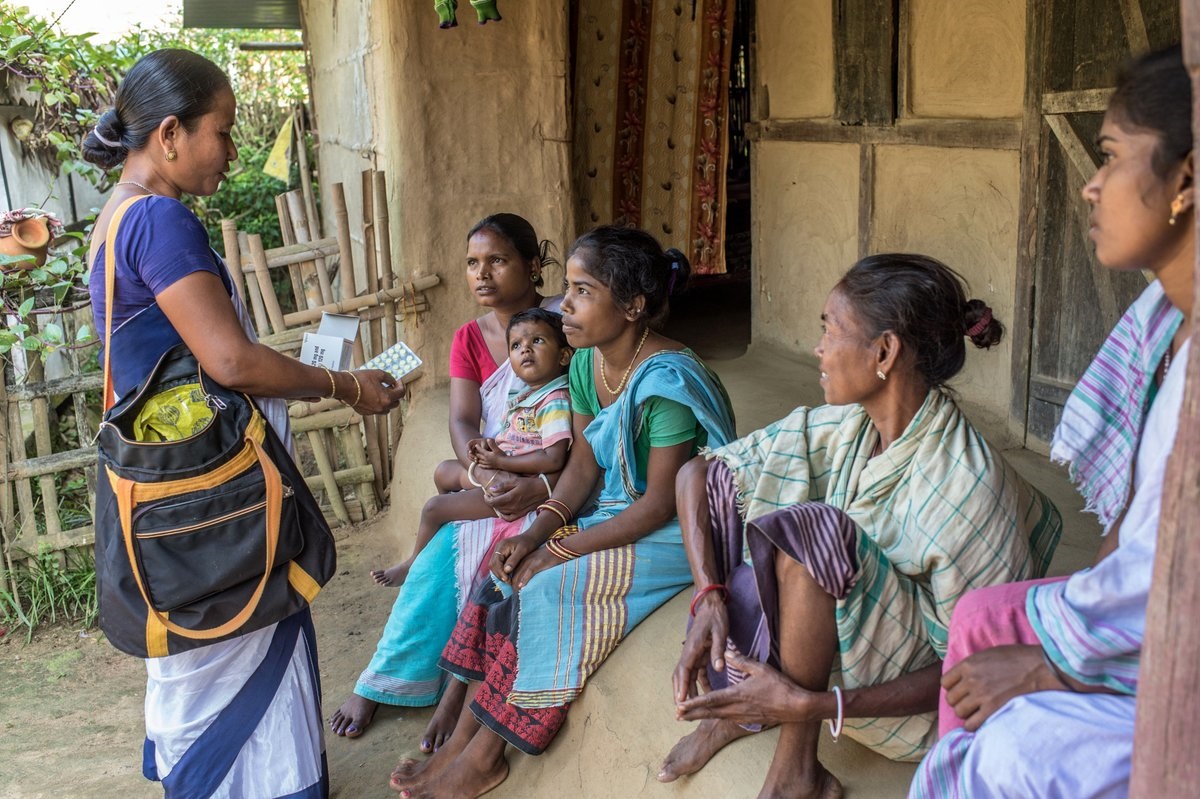
Country Strategy and Support

The Country Strategy and Support (CSS) unit, under the Regional Director’s Office, is responsible for ensuring clear strategic direction to strengthen WHO’s work at country level through a participatory, multi-sectoral and multi-stakeholder approach based on GPW13 as well as national health policies and plans.
In coordination with Member countries, WHO HQ departments and external partners, the unit facilitates the implementation of WHO's commitment to put countries squarely at the center of its work to ensure that WHO's support is relevant, flexible, and effective and translates into measurable impact.
CSS collaborates with and support other divisions in identifying country needs and priorities, anchoring health within the global development agenda to support countries towards achievement of SDGs.
Contacts
- Dr Kishori Mahat, Technical Officer, CSS/FEL (e-mail: [email protected])
- Ms Pushpa Prabhu, Admin and Prog. Associate (e-mail: [email protected]
- Generic e-mail: [email protected]
Our work
Country Cooperation Strategy
The Country Cooperation Strategy (CCS) is WHO’s strategic framework to guide the Organization’s work in and with a country. It responds to that country’s National Health and Development Agenda and identifies a set of agreed joint priorities for WHO collaboration, covering those areas where the Organization has a comparative advantage in order to assure public health impact. The CCS is WHO’s corporate framework strategy to implement GPW13 with a response to country needs and priorities and addresses the Sustainable Development Agenda in health-related Sustainable Development Goals (SDGs).
As the public expression of WHO’s results chain at the country level, the CCS sets out clearly defined impact targets for each of the agreed priorities. It also provides input to the process of formulating key elements of WHO’s operational instruments such as the Country Support Plan, which is linked to the Programme Budget. The CCS brings corporate value to WHO as both a process and an instrument. It is recommended that each CCS should be aligned with the GPW13 and United Nations Sustainable Development Cooperation Framework. Wherever applicable the CCS should serve as the starting point for WHO work in that country. This will allow WHO and the Member State to deliver priorities through the CCS strategic framework and measure impact at country level, and to track health-related SDGs.
The timeframe is flexible to align with national planning cycles. It is generally 4–6 years. The key principles guiding WHO’s cooperation in countries and upon which the CCS is based are:
- Ownership by the country of the development process;
- Alignment with national health priorities and strengthening national health systems in support of the NHPSP;
- Harmonization with the work of other organizations of the UN system and other partners in the country towards effective development cooperation; and
- Collaboration with Member States' in shaping the global health agenda.
Publications
Country cooperation strategy guide 2020: implementing...
South-East Asia Region: Country Cooperation Strategy
WHO Bangladesh Country Cooperation Strategy: 2020–2024
In the recent decades Bangladesh has made remarkable socioeconomic progress, including poverty reduction, improvement in women’s education, increasing...
WHO Country Cooperation Strategy 2020-2024: Bhutan
The Country Cooperation Strategy (CCS) is WHO’s strategic framework to guide the Organization’s work in and with a country. It responds to...
The Country Cooperation Strategy (CCS) is WHO’s strategic framework to guide the Organization’s work in and with a country. It responds to...
The Country Cooperation Strategy (CCS) is WHO’s strategic framework to guide the Organization’s work in and with a country. It responds to...
WHO Country Cooperation Strategy 2014-2019: Indonesia
The Country Cooperation Strategy (CCS) is WHO’s strategic framework to guide the Organization’s work in and with a country. It responds to...
Maldives-WHO: country cooperation strategy 2018-2022
The Country Cooperation Strategy (CCS) is WHO’s strategic framework to guide the Organization’s work in and with a country. It responds to...
WHO Country Cooperation Strategy: 2014-2018, Myanmar
The Country Cooperation Strategy (CCS) is WHO’s strategic framework to guide the Organization’s work in and with a country. It responds to...
Nepal – WHO country cooperation strategy: 2018-2022
The Country Cooperation Strategy (CCS) is WHO’s strategic framework to guide the Organization’s work in and with a country. It responds to...
WHO country cooperation strategy: 2018–2023, Sri Lanka
The Country Cooperation Strategy (CCS) is WHO’s strategic framework to guide the Organization’s work in and with a country. It responds to...
WHO country cooperation strategy, Thailand: 2017–2021
The Country Cooperation Strategy (CCS) is WHO’s strategic framework to guide the Organization’s work in and with a country. It responds to...
In the last decade, Timor-Leste has made remarkable progress in strengthening its health system and improving the health status of its population. This...







